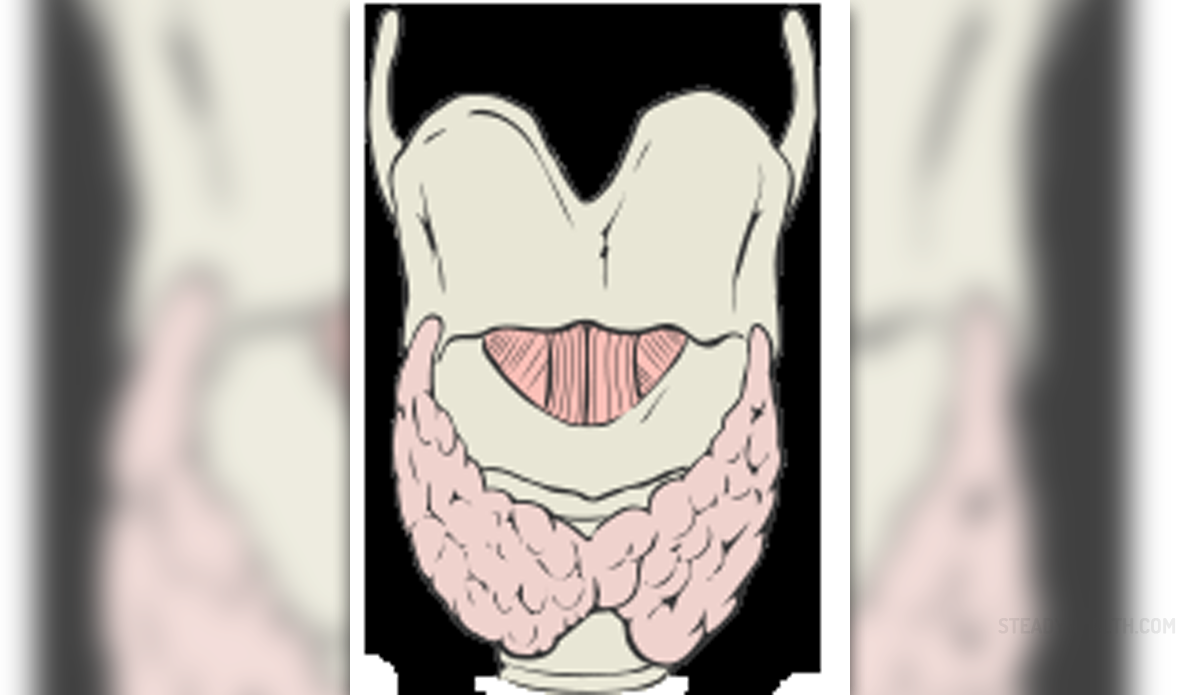
What is Thyroid Disease? Thyroid disease is a common condition that affects over 12 million people in the U.S. and in many people the disease is undiagnosed.
The thyroid is an endocrine gland located in the neck, below the Adam’s apple. Its function is to regulate different metabolic processes, such as protein production, body temperature and energy production. The thyroid gland produces several hormones of which thriiodothyronine (T3) and thyroxine (T4) are the main ones. In order to produce these hormones, the thyroid gland needs different nutrients such as iodine, selenium and thyrosine, which can be obtained from food.
Thyroid disease takes place when the thyroid gland releases too much (hyperthyroidism) or insufficient amount of thyroid hormones (hypothyroidism).
Hypothyroidism
Hypothyroidism or underactive thyroid gland is a condition marked by deficiency of thyroid hormone. Hypothyroidism develops due to an inflammation of the thyroid gland.
Low level of thyroid hormones affects normal functioning of the body and causes variety of symptoms. Underactive thyroid gland typically affects intellectual functions and memory. It also causes unexplained weight gain despite decreased appetite. Other symptoms of hypothyroidism include: chronic fatigue, muscle weakness, constipation, cold intolerance, a hoarse voice, brittle nails and dry skin. Hypothyroidism is also associated with: depression, sluggishness, puffy face and heavy or irregular menstrual periods.
Conventional Treatment for Thyroid Disease
Hypothyroidism can be detected with the help of physical examination and blood test that measures the level of thyroid hormone.
Thyroid disease is commonly treated with hormone replacement therapy that is given to restore normal levels of thyroid hormones in the blood. Therapy with synthetic thyroid hormone is administered when the thyroid is underactive and fails to produce sufficient thyroid hormones.
Most commonly used medication for this treatment is Levothyroxine. This medication must be continued even when the symptoms disappear. In fact, thyroid hormone replacement therapy is a life long therapy. Once a stable dose of synthetic thyroid is determined, levels of thyroid hormone must be monitored every year.
Natural Treatment for Thyroid Disease
Although usually effective, thyroid replacement therapy entails numerous side effects. Thyroid replacement therapy can lead to shakiness, diarrhea, sensitivity to heat, difficulty sleeping, nervousness, irregular heart beat, bone thinning, rapid weight loss and other health problems.
To avoid these side effects of hormone therapy, one can opt for natural herbal remedies and natural supplements that can be equally successful in the treatment of thyroid disease. One of the most effective hypothyroidism natural treatments is Hypothyrex. Hypothyrex is a formula that includes organic herbal extracts, vitamins and minerals. Benefit of this natural treatment is that it does not have to be used for life.


-In-Infants-And-Older-Children_f_280x120.jpg)

-What-Are-Your-Options_f_280x120.jpg)
-During-Pregnancy_f_280x120.jpg)





-In-Adults_f_280x120.jpg)





Your thoughts on this
Loading...